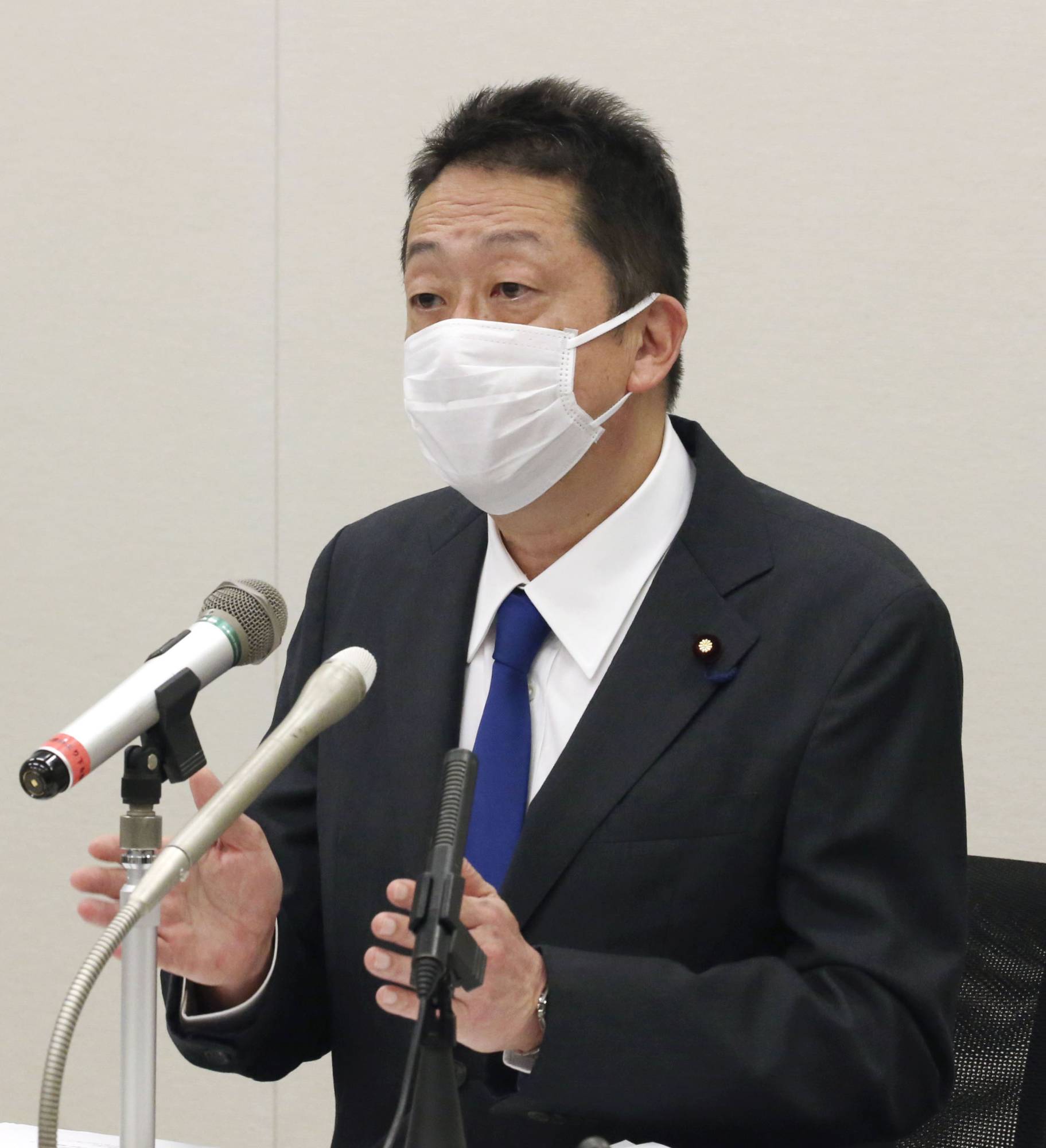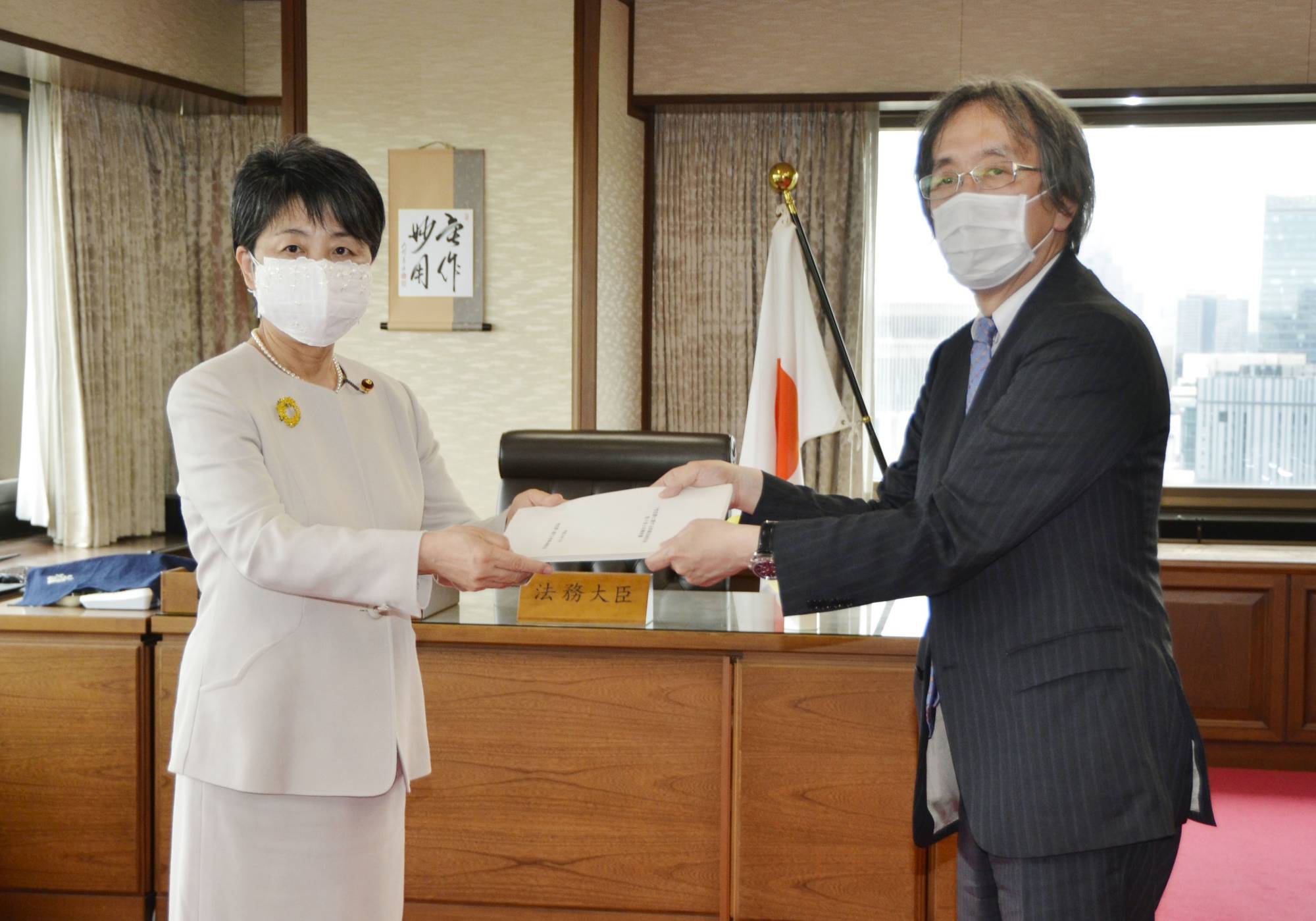OSAKA – The issue of the age of consent has seen renewed focus in Japan in recent months, after a Constitutional Democratic Party of Japan (CDP) lawmaker made controversial comments during a party meeting on May 10 looking at whether to raise the age from 13 to 16.
Hiranao Honda, 56, is reported to have said that he found it strange that he could get arrested if he had sex with a 14-year-old even if there was consent, assuming the age ends up being raised. He apologized for the remarks before resigning from the party Wednesday, and his political future is uncertain even as the debate over whether to raise the minimum age of consent continues.
Why has the age of consent been in the spotlight?
Honda’s comments are not the only reason. In March 2020, the Nagoya High Court overturned a 2019 lower court ruling that had found a man not guilty of raping his daughter between the ages of 14 and 19 — the father, who was 50 at the time of the higher court ruling, received a 10-year prison sentence. The key issue in the case was how difficult it was for the victim to psychologically and physically resist the father.
The prosecutors and the victim had to prove she was unable to resist and was therefore raped, a claim the lower court rejected. Had she been younger than 13, she wouldn’t have had to prove this and the lower court would have automatically ruled it to be rape.
The lower court ruling sparked much anger and what became known as “flower demonstrations” emerged nationwide against dismissals of paternal rape allegations. The high court judge sided with the victim, saying that the daughter had been deprived of her will to resist her father, as she had been abused by him since she was 14 years old and in junior high school. As the physical and psychological pain she suffered was severe, the high court ruled a crime had occurred.
What’s the legal age of consent in Japan and how is it different from other countries?
The age of consent is 13. It’s defined as the age from which a person is deemed capable of consenting to sexual activity and such consent is legally valid. Those under the age of consent are legally regarded as sexual abuse and/or rape victims.

In the United States, different states have different laws on the age of consent. For example, in Michigan, sex with those under 16 is punishable by various laws. In New York, it’s 17, and in California those under 18 can be legally punished for sex.
In the U.K. and South Korea, the age of consent is 16, while it’s 15 in France and 14 in China, Germany and Italy.
What are the relevant laws in Japan that deal with the age of consent?
The penal code sets the age of consent at 13 and defines legally punishable forced sexual acts in separate categories of “indecent acts” and “sexual intercourse.” A separate child welfare act prohibits causing a child to commit obscene acts.
There are also prefectural and municipal regulations designed to protect youths. They include articles that prohibit sexual misconduct involving minors.
In 2017, the penal code articles concerning sex crimes were revised for the first time since their creation in 1907. Article 177 of the code, long known colloquially as the rape law, had stated that a person who, through assault or intimidation, forcibly commits sexual intercourse with a girl no younger than 13 shall be punished with at least three years in prison.
The renamed article changed the language from “female” to “a person,” and the minimum prison term was also increased from three to five years. However, the age of consent was still left at 13.
The 2017 change also included punishment for indecent acts by a custodian. This means legal punishment for cases without assault or threats but where the offender abuses their position of custody or protection of a child under the age of 18 to commit sexual acts.
What is the status of government discussions on changing the age of consent?
The 2017 changes also included a call for the laws to be reviewed every three years. A Justice Ministry committee began its review last year, and among the questions the committee dealt with was whether to raise the age of consent.
In a report of its discussions released in May, the same month Honda made his comments, there was no disagreement among committee members that it is necessary to consider how to deal with victims who are under a certain age, since they are vulnerable. But there was no agreement on raising the age of consent to a specific age.



The committee did note that if the age of consent was raised to 16, under current Japanese law junior high school students could be criminally prosecuted if they kissed or had sexual intercourse in an equal, romantic relationship. Committee members agreed that such cases should be criminalized, but recommended that the offense only be punishable when the offender is about a certain age or when there is a certain age difference between the offender and the other party.
In neither case, however, did the committee offer specifics on the age of the offender or the age gap between the parties as a minimum standard for criminal prosecution.
The report concluded by saying that further consideration should be given to different aspects, including the relationship with the age of criminal responsibility, to ensure that sexual acts that should not be considered as crimes are not included within the scope of punishment. The committee also urged more discussion on how to deal with young people who have reached the age of consent for sexual intercourse but whose decision-making and judgment are still weak.
Why are Honda and his supporters against raising the age of consent and what’s the reaction to their argument?
According to a CDP report, Honda is cautious about any legal or political regulations that might interfere with freedom of thought and the right to the pursuit of happiness and self-determination.
Flower demo members, on the other hand, argue that lawmakers’ old-fashioned stance has driven victims into a corner and that minors shouldn’t be treated as adults. At a July 22 meeting with CDP Secretary-General Tetsuro Fukuyama, those involved in the flower demonstrations said the penal code needs to be revised to better protect children.
Fukuyama said that the party is in favor of raising the age of consent from 13 to 16, and that its platform for an upcoming general election will include its position that adults should not have sexual intercourse with junior high school students or those who are younger for any reason.
In a time of both misinformation and too much information, quality journalism is more crucial than ever.
By subscribing, you can help us get the story right.
SUBSCRIBE NOW


